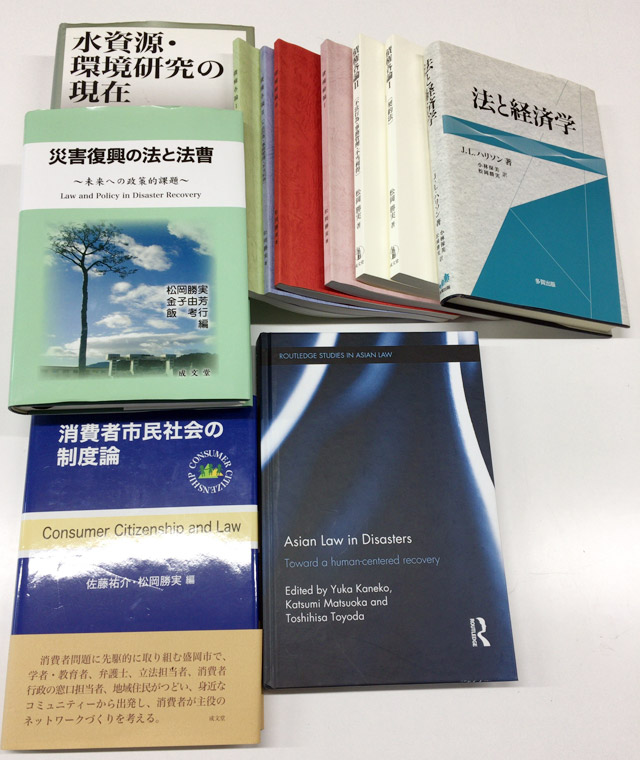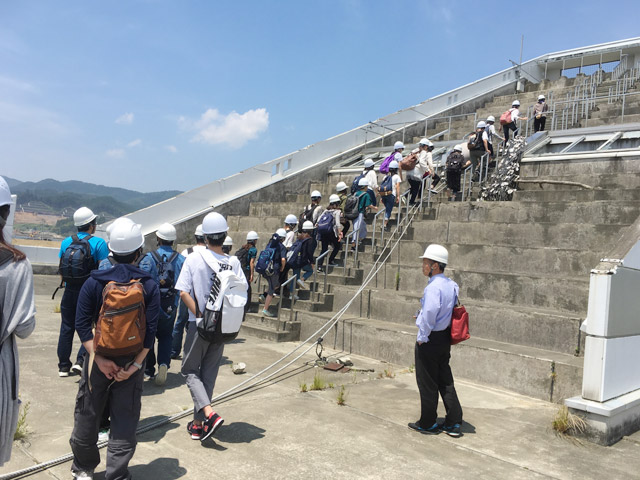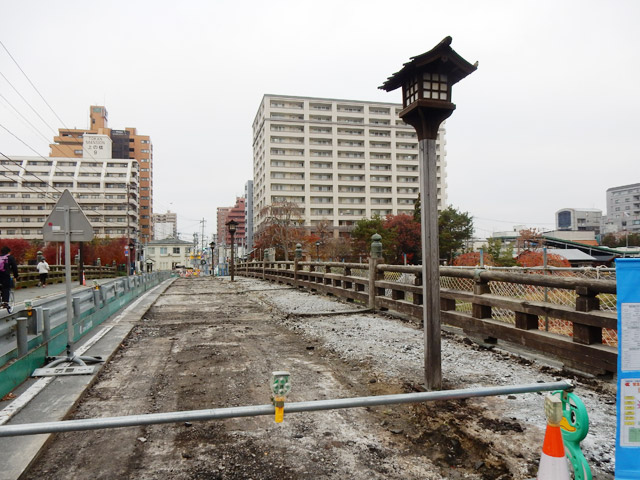Graduate Course in Regional and Community Design
Overview
This course aims to foster a wide perspective and cultivate human resources that can tackle the planning, construction, improvement, and maintenance of regional social infrastructure and lead initiatives to solve environmental problems, human resources that can contribute to earthquake reconstruction and regional innovation, and human resources that can accurately handle regional problems relating to safe and secure lifestyles, based on the teachings of the Great East Japan Earthquake and the unique natural environment, local community infrastructure, and social conditions of the region.
Programs
Regional Management Program
 This program focuses on achieving safe and secure regional lifestyles that consider law, the environment, and earthquake reconstruction, and aims to cultivate human resources with deep insight and a wide perspective regarding the local community infrastructure and environment.
This program focuses on achieving safe and secure regional lifestyles that consider law, the environment, and earthquake reconstruction, and aims to cultivate human resources with deep insight and a wide perspective regarding the local community infrastructure and environment.
More specifically, this program provides education to enable students to comprehensively obtain specialized knowledge and ideas about legal studies and environmental studies (one example of this is how we integrate legal and environmental fields by conducting lectures about the environment in classes and lectures on advanced public law and advanced regional environmental policy) and the ability required to utilize these skills in tandem to accurately handle regional problems regarding safe and secure lifestyles.
Disaster Management and Community Development Program
 Human resources that can contribute to regional innovation and earthquake reconstruction based on the lessons learned from the Great East Japan Earthquake are needed. The Disaster Management and Community Development Program provides an education research program for gaining the knowledge, experience, and methodology required for regional reconstruction and innovation after a disaster that may occur in the future, based on the practical wisdom accumulated at Iwate University during reconstruction.
Human resources that can contribute to regional innovation and earthquake reconstruction based on the lessons learned from the Great East Japan Earthquake are needed. The Disaster Management and Community Development Program provides an education research program for gaining the knowledge, experience, and methodology required for regional reconstruction and innovation after a disaster that may occur in the future, based on the practical wisdom accumulated at Iwate University during reconstruction.
Pressing issues for reconstruction and regional innovation include the formation of residential environments consisting of non-disaster areas and new residential areas, looking after the elderly living in places such as disaster public housing, and expanding the resident/nonresident population. A comprehensive approach that includes government policy/institutional design, regional/urban planning, regional disaster prevention, and ICT utilization, etc. is required. This program provides students with the deep specialized knowledge and practical ability to solve regional problems regarding such disaster prevention and urban development, in order to cultivate human resources that can succeed at companies or NPOs, etc. related to disaster prevention and urban development, public offices, and universities or research institutes, etc.
Civil and Environmental Engineering Program
 This program focuses on important pressing issues, such as education and research into the optimization and reconstruction of social infrastructure to achieve compact cities in anticipation of a society with a low birth rate and aging population, and building a robust regional society that is safe and secure and can grow sustainably. Therefore, the program aims to cultivate human resources that can succeed in fields such as technical public servants at the national, prefectural or city/town/village level, teaching (for industry), construction, construction consulting, and railway/road transportation, by training advanced engineers and researchers that can tackle planning, construction, improvement, and maintenance of regional social infrastructure and leading initiatives to solve environmental problems, while seeing problems in terms of the big picture and considering the unique natural environment and social conditions of the region.
This program focuses on important pressing issues, such as education and research into the optimization and reconstruction of social infrastructure to achieve compact cities in anticipation of a society with a low birth rate and aging population, and building a robust regional society that is safe and secure and can grow sustainably. Therefore, the program aims to cultivate human resources that can succeed in fields such as technical public servants at the national, prefectural or city/town/village level, teaching (for industry), construction, construction consulting, and railway/road transportation, by training advanced engineers and researchers that can tackle planning, construction, improvement, and maintenance of regional social infrastructure and leading initiatives to solve environmental problems, while seeing problems in terms of the big picture and considering the unique natural environment and social conditions of the region.
That is why the program provides students with not only specialized engineering knowledge related to construction engineering, urban planning, and environmental engineering, but also the ability to lead regional innovation with a comprehensive perspective gained from common division subjects and common course subjects.